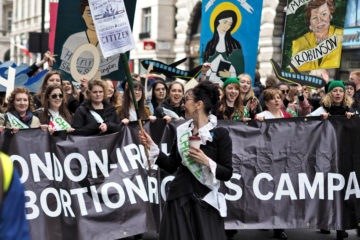Members of the LSE community pushed officials to expand the scope of an action plan meant to address outcry over incidents with the rugby and football teams in a town hall meeting on Tuesday.
The report, released online on Monday, focuses on reforming the school’s culture concerning discrimination on the grounds of gender and sexual orientation. These are issues that took centre stage at the beginning of term when the rugby team distributed leaflets containing misogynistic and homophobic slurs.
In response, officials promised to move quickly to change policies, such as streamlining the process to report abuses, creating a comprehensive document of expected behaviours and potentially addressing equality and diversity in the LSE 100 course.
Officials will also explore halving the investigation period before a disciplinary hearing from 20 days to 10, as well as options to investigate cyber abuse by monitoring e-mail accounts in cases of alleged harassment.
They promised to follow up on the content of the policies by the end of the Lent term.
The presentation sparked tension between administrative staff and those in attendance over the desire to keep the report – and subsequent actions – tailored toward gender and sexual orientation rather than expand the scope to include other issues, specifically race.
LSE Director Craig Calhoun acknowledged that the university had “a terrible record on race,” and that the mess created by the football team had mainly impacted minority working staff of lower socio-economic status than the perpetrators.
Although the initial goal was to avoid diluting the response, race will be added to the next iteration of the report, said Simeon Underwood, academic registrar and director of academic services at LSE.
“If you cast the net too wide, you won’t end up catching many fish,” Underwood said.
LSE provides data on student admissions from the United Kingdom on its website. Figures show that offers went out 1449 white students for the 2013 year out of a total of of 2443 offer holders. White students currently make up over 56 percent of registered first-year students in undergraduate and post-graduate programs combined.
Other criticisms included worries from members of the law department regarding a “chilling effect” on freedom of speech, as well as separate comments that the recommendations “infantilise” students and that the report targets “masculinity.”
“This isn’t a case of free speech, this was hate speech,” said Nona Buckley-Irvine, general secretary of the LSE Students’ Union. She went on to congratulate student leadership volunteers for their work in reaching out to both impacted students and the sports community since the incidents.
The report also mentioned staff-level concerns regarding pay inequality and the university’s failure to receive recognition from the Equality Challenge Unit, a charity which supports diversity in UK higher education institutions. LSE also came 319 out of 369 on the Stonewall Workplace Equality index, which ranks employers based on their “gay-friendly” atmosphere, according to the website.
The university is working with various organisations to create action plans to address the issues, according to the report.
The conversation at LSE is taking place in many forms at numerous education-related institutions. The National Union of Students took on the “lad culture” two years ago in a report called “That’s What She Said” in which it used numerous interviews to document peer pressure, sexual harassment and other offences perpetrated by both men and women.
NUS launched a committee on the subject a year later, which has since announced a pilot program to look at the phenomenon on some UK campuses and what policies are in place to tackle the problem, according to the NUS website.
Universities in the United States have also made headlines in recent months with attempts to change what many see as a pervasive tendency to blame the victim of sexual assault. The California legislature passed a “yes means yes” law, a bill which standardised the definition of sexual assault for all campuses that receive state funds for student financial aid.
Additionally, The Guardian newspaper reported in September that U.S. women’s universities are slowly changing the way they approach applications from individuals who identify as transgender.
LSE will push forward with its new agenda in coming months, although the level of success will depend on “the will” of the community, Calhoun said.
“LSE will be a leader, but we need to focus on the results,” he concluded.



